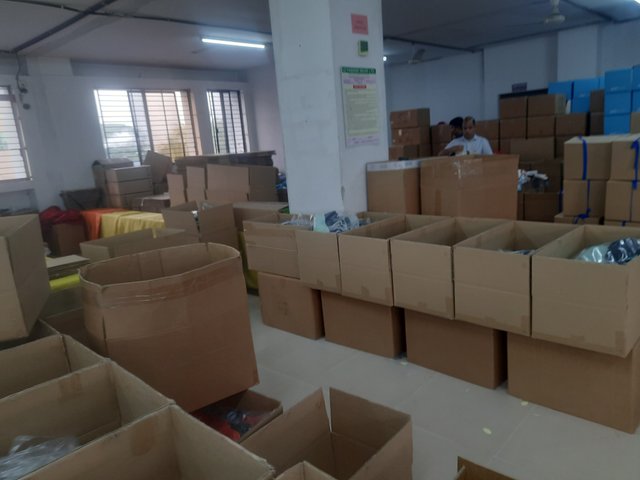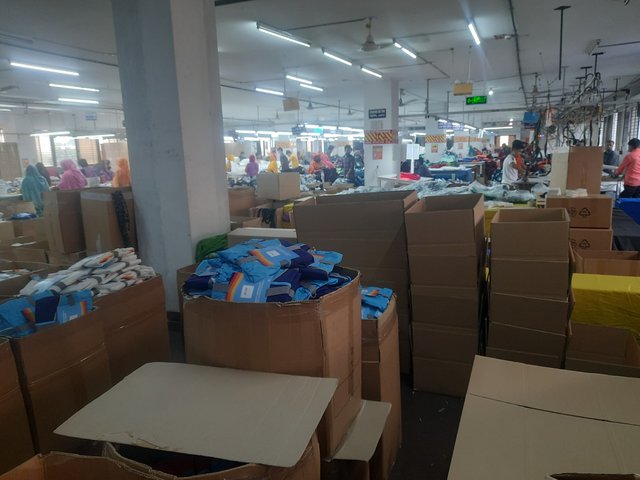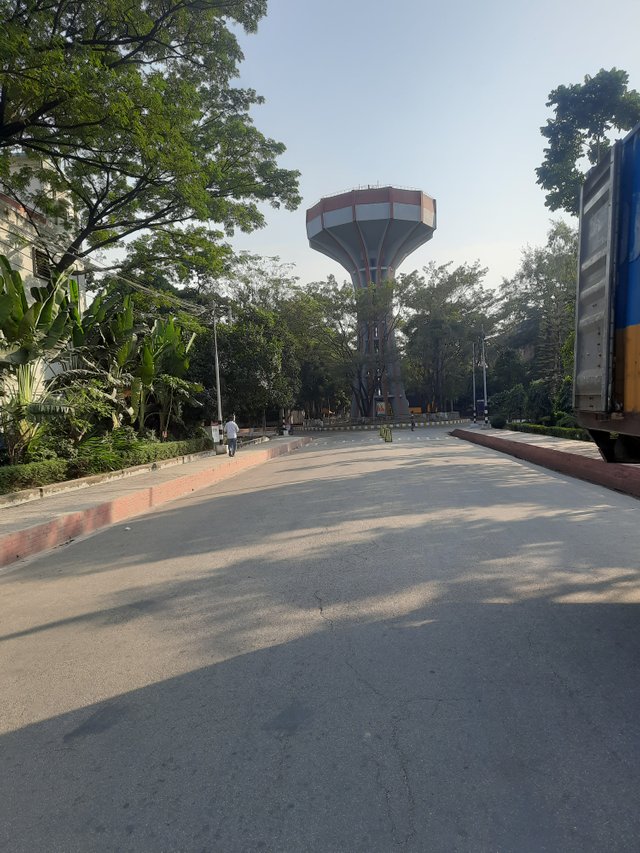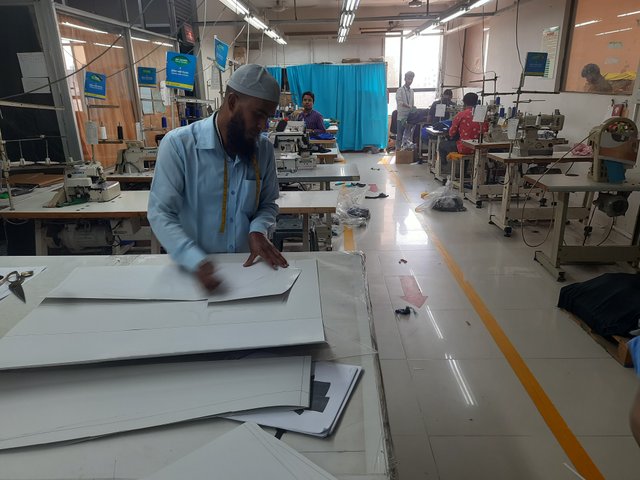
Exemption from the "Bonded Warehouse Licensing Rules, 2008" for the industrial establishments located in these EPZs, along with notifications revoked from the Customs Bond Commissionerate' 2014 standing orders and a variety of instructions concerning bond license acceptance and renewal, import availability, coefficient determination, etc., have been implemented. Use Permit (UP) and Utilization Declaration (UD) submission is not mandatory for industrial businesses located here. All connected customs houses and bond commissariats have received the necessary orders to handle import and export as well as other related activities.
The National Board of Revenue (NBR) grants industrial firms in EPZs bond registration and licenses, which are thereafter permanent, according to the Bepza announcement. Also, meetings between the Prime Minister's Office, NBR, Ministry of Commerce, Customs, Bepza, and investors are held periodically to facilitate various activities related to EPZ customs. These meetings take into consideration the attraction of both domestic and foreign investment, the multifaceted benefits of investment, and the increased interest in national exports. In light of this, they have been carrying out their business operations in EPZ industrial facilities. Without consulting Bepza or EPZ investors, it was said that EPZ was later included in the Bonded Warehouse Licensing Rules, 2008 that were released by the NBR in 2008. This has led to contradictions and difficulties with the 1984 regulations and the time-simplified customs policy that is currently in effect for EPZs, concerning a number of issues like the issue and renewal of bond licenses rather than bond registration, import availability, coefficient determination, etc. EPZ investors are encountering several challenges related to bond registration, import, and export, causing disruptions to their regular import-export operations.
As per Bepza's report, the Customs, Excise, and VAT Commissionerate, Rangpur, has issued instructions for the submission of Utilization Permit (UP) or Utilization Declaration (UD) in the case of exports to industrial establishments in EPZs, even though the government has maintained the exemption of EPZs from the National Import and Export Policy Order. Consequently, certain industrial companies in the EPZs of Ishwardi and Uttara have stopped their import-export operations for the past two months. The EPZ investors are quite anxious and concerned about this issue. it is anticipated to have a disastrously detrimental effect on the continuous flow of both international and local investment into the EPZ.
By generating jobs for over 5 lakh people and drawing in both foreign and domestic investment through the creation of EPZs around the nation, Bepza claims that the government has been making a 17 percent contribution to the nation's export earnings. This means that in order to maintain the steady flow of exports, jobs, and investment into EPZs, the industrial facilities within the zones must guarantee continual import-export operations.

The Export Processing Zone (EPZ) of Bangladesh is an acronym. By processing agricultural products and other superior items made in Bangladesh, EPZs are assisting in the country's foreign exchange earnings by exporting domestic goods to international markets. Under the direction of Chittagong EPZ, the voyage began in 1983. There are eight EPZs in the nation right now. Ishwardi, Karnaphuli, Uttara, Mongla, Dhaka, Kumilsna, Adamji, and Chittagong.
Bepza data indicates that 459 more industrial facilities in 38 nations, including Bangladesh, are still in operation despite the country's total of 8 EPZs. Over 70% of industrial establishments are run by foreign capital. The right investment climate in our nation's economic protection zones (EPZs) has led to a daily increase in foreign investment.
The nation's eight EPZs continue to make significant contributions to GDP. Owing to the severe coronavirus outbreak, which has caused a crisis in the global commodities import-export market, Bangladesh's EPZs have been able to partially offset the economic losses suffered by our nation by creating items that are both acceptable and sustainable. Eight of the country's EPZs brought in USD 6030 million in revenue during the 2018–2019 fiscal year, according to BEJPA. The revenue for the 2019–2020 fiscal year is 4944 US dollars. The revenue from EPZs in the fiscal year 2020–2021 is USD 6.64 billion, notwithstanding the Corona pandemic. Approximately 20% of the country's exports come from EPZ. Experts predict that exports from EPZs will increase at a rate of 15–16% in 2022-2023. Chittagong EPZ is where the most money is made. A number of enterprises that had halted production due to the coronavirus outbreak have now resumed it. Once we get past the worldwide recession brought on by the coronavirus epidemic, the world economy will return to normal. Production activities are being carried out efficiently by industrial entities in EPZ once more. Employee productivity is high in our nation's EPZs since they are labor-friendly structures. In eight EPZs in 2020, there were about 461460 local and 2214 foreign employees hired. The country's EPZs employ both men and women equally. 294170, or 67% of the workforce, are women, and 151512 men. One developing nation is Bangladesh. There is a daily rise in both unemployment and unskilled labor. Bangladesh sees the entry of 20 to 22 million youth onto the work force annually. Economist Intelligence Unit (EIU) reports that about half of Bangladesh's annual workforce of highly educated job searchers are either unemployed or do not receive the jobs they desire. The government of Bangladesh has to build new jobs in order to reduce the extreme unemployment rate there. Under those circumstances, the government can emphasize foreign investment and expand the number of EPZs in order to turn this massive unemployment into human resources. Data from Bepza indicates that the majority of investments in EPZs originate from the following countries: South Korea, China, Taiwan, Japan, India, the United States, the United Kingdom, Malaysia, Pakistan, Sri Lanka, Germany, Netherlands, Italy, Canada, Singapore, Denmark, Indonesia, Belgium, France, Switzerland, and other countries like Australia and Spain. To entice domestic and international investors, expand the number of EPZs. Millions of young people in the nation will be employed as a result of the creation of more EPZs, which will also enable the nation to gain foreign cash through exports by manufacturing and processing top-notch goods and drawing in investors from the Middle East and Europe. Investing in Bangladesh presents a number of challenges for foreigners, including lengthy delays, complicated paperwork requirements, and corruption. For each of these issues, EPZ may offer a straightforward fix. Because the Prime Minister's office oversees the EPZ directly, investors can invest and create goods without difficulty. Three quarters of a million dollars, or almost 300 million rupees, have been invested in EPZ notwithstanding the threat. Entrepreneurs prefer EPZs over PZs because of the ease of investment in EPZs; nonetheless, eight EPZs in the country lack sufficient land or space, making investments by many foreign businesses impossible. The lack of available land prevents many businesses from making the investments they would like to. To satisfy the demand for EPZ investments from enterprises, more EPZs must be created. The creation of economic zones centered on cutting-edge technologies is vital. Foreign investment is a vital component of every nation's economy, and in order to eradicate poverty and unemployment in our nation, new jobs must be created. In order to create a zone of sustained economic growth, the government ought to highlight this.

The EPZ has already been expanded through a number of actions made by the Bangladeshi government. Bepza has generated 32,000 new job opportunities through foreign investment in eight export processing zones, during a period when unemployment became a significant problem due to the pandemic-related job loss. I.e. Through the production and processing of commodities, domestic and foreign enterprises will invest in Bangladesh's growing number of sustainable EPZs, earning foreign currency. Additionally, EPZs will help turn the massive unemployment rate in the nation into work opportunities.
Notwithstanding a number of challenges, including as the COVID-19 epidemic, order cancellations, and order shortages, the industries housed in the eight EPZs have recovered magnificently in the last two years, setting new records for export earnings.
During the fiscal year 2021-2022, the eight government-run Export Processing Zones (EPZs) in the nation, which are overseen by the Export Processing Zones Authority (BEPZA), saw increases in investment, export revenues, and employment creation.
The EPZ business has experienced an unprecedented surge in export revenue over its 40-year history of creation. In the current fiscal year, revenues of $8.85 billion, up 30.41% from $6.63 billion in the previous one. This industry has never produced such a record amount of revenue in the history of the nation.
Despite a number of challenges over the past two years, including as the COVID-19 epidemic, purchase order cancellations, and order shortages, industries housed inside the eight EPZs have recovered admirably, according to Bepza data.
Of overall export revenue in FY-22, EPZ accounted for 16.65%.
export revenue growth that is unprecedented
With $2.59 billion in total export revenue in the fiscal year 2021–2022, Chittagong EPZ came in first place. On the list of EPZs, it is followed by Dhaka ($2.12 billion), Karnaphuli ($1.44 billion), Adamji ($935.76 million), Comilla ($2.66), Uttara ($376.66), Ishwardi ($209.06 million), and Mongla ($158.24 million).
Furthermore, as of June 2022, EPZ's total export revenue was $96 billion.
In terms of total exports, EPZ made up 85% of the nation. Wearable exports made up 54.68% of this total. In other words, EPZs are locations where a variety of items are produced.
In 2021–2022, Bepza was awarded a record investment of 409.8 million. which is 20.26% more than the $340,75 million from the fiscal year 2021.
An investment totaling 88.86 million dollars was given to Chittagong EPZ. The next highest EPZ amounts are $71.07 million in Dhaka, $70.62 million in Adamji, $67.46 million in Comilla, $45.15 million in Karnaphuli, $42.78 million in Ishwardi, $18.68 million in Mongla, and 5.18 million in Uttara.
Six.04 billion dollars have been invested in eight EPZs under Bepza by investors from 37 different nations as of June 2022, including Bangladesh, South Korea, China (Taiwan and Hong Kong), Japan, India, the UK, and the USA.
The target was accomplished by giving 64,160 Bangladeshi citizens jobs in the just ended fiscal year 2022. of which, in FY2021—a little over 47,000.
Bepza officials assert that in spite of the detrimental effects of the Covid-19 outbreak, Bepza has successfully restored jobs.

There are 19,111 maximum jobs that Chittagong EPZ has produced. Following that, 10,451 individuals were hired by the EPZ in Dhaka, 9,924 by Adamji, 9,792 by Comilla, 7,319 by Karnaphuli, 3,002 by Ishwardi, 995 by Uttara, and 912 by Mongla.
Employers in EPZ are now 5,02,365 as of June 2022.
The creative and investment-friendly policies and incentives of the Prime Minister-led administration, according to Bepza Executive Chairman Major General Abul Kalam Mohammad Ziaur Rahman, are the cause of the increase.
Significant contributions were also made by Bepza's knowledge, commitment, and ease of doing business in the EPZ.
"Every EPZ investment is intended to be labor and environmentally friendly," he stated. Furthermore, the rise can be attributed to the nation's diligent populace.
Furthermore, according to him, they always favor businesses that would give the local population greater job chances.
Variety in the industry
Eight EPZs contain 451, according to the executive chairman of Bepza. 149 apparel factories are among them.
"We are focusing on diversification with an emphasis on setting up advanced technology-based industries," stated the CEO.
Many products are currently produced at EPZs, including medical equipment, electrical parts, automotive parts, and mobile parts.
He went on to say that we are now promoting investment in the medical business and equipment.
We are on the verge of the Fourth Industrial Revolution (4IR). As a result, Bepja is promoting the establishment of sectors like robotics, automation, artificial intelligence, and computers.
Future Potential Abdul Kalam According to Mohammad Ziaur Rahman, every EPZ will be automated, digitalized, and system-based using technology. This system will combine all of the processes, including banking and customs. There will also be the establishment of a One-Stop Service (OSS).
He went on, "We're going to implement current technologies in each EPZ's wastewater treatment plant (WTP) and water treatment plant (WTP). The use of renewable energy sources is another priority for Bepza.
Also, he predicted that Bangladesh will transition from an LDC to an industrialized nation by 2041. The domestic market is another goal for Bepza.
"Population growth will turn people from a burden to an asset," he declared. An industrialization that is sustainable requires both robust connection sectors and a diverse range of products.
Gas and electricity supplies must be continuous, according to Bepza's Executive Chairman, in order for business to operate smoothly. The existing state of the world does not prevent Bangladesh from achieving its objectives.
During July, exports rose by 15.26%.
Comparing July of this year to the same month last year, Bangladesh's exports climbed by 15.26%.
Comparing July of this year to the same month last year, Bangladesh's exports climbed by 15.26%.
In the first month of the fiscal year 2023–24, exporters made $4.59 billion, compared to $3.9 billion in the same month the previous year, according to data from the Export Promotion Bureau (EPB).
Foreign exchange reserves in the nation should rise as a result of the increase in exports.
Comparing June to July of last year, garment exports rose 17.43% to $3.95 billion.
Hi... Nice to see you here.
As a new user on the platform, what you have to do is understand the platform ecosystem, you have to complete Achievement 2, 3 to Achievement 6. There you will understand about Basic Security on steem, content etiquette, understanding the use of markdown, the steem tools and curation, witness and community.
Your type of post must have references so that it becomes a reference for readers, especially when you describe data and quotes from other people's opinions.
Downvoting a post can decrease pending rewards and make it less visible. Common reasons:
Submit